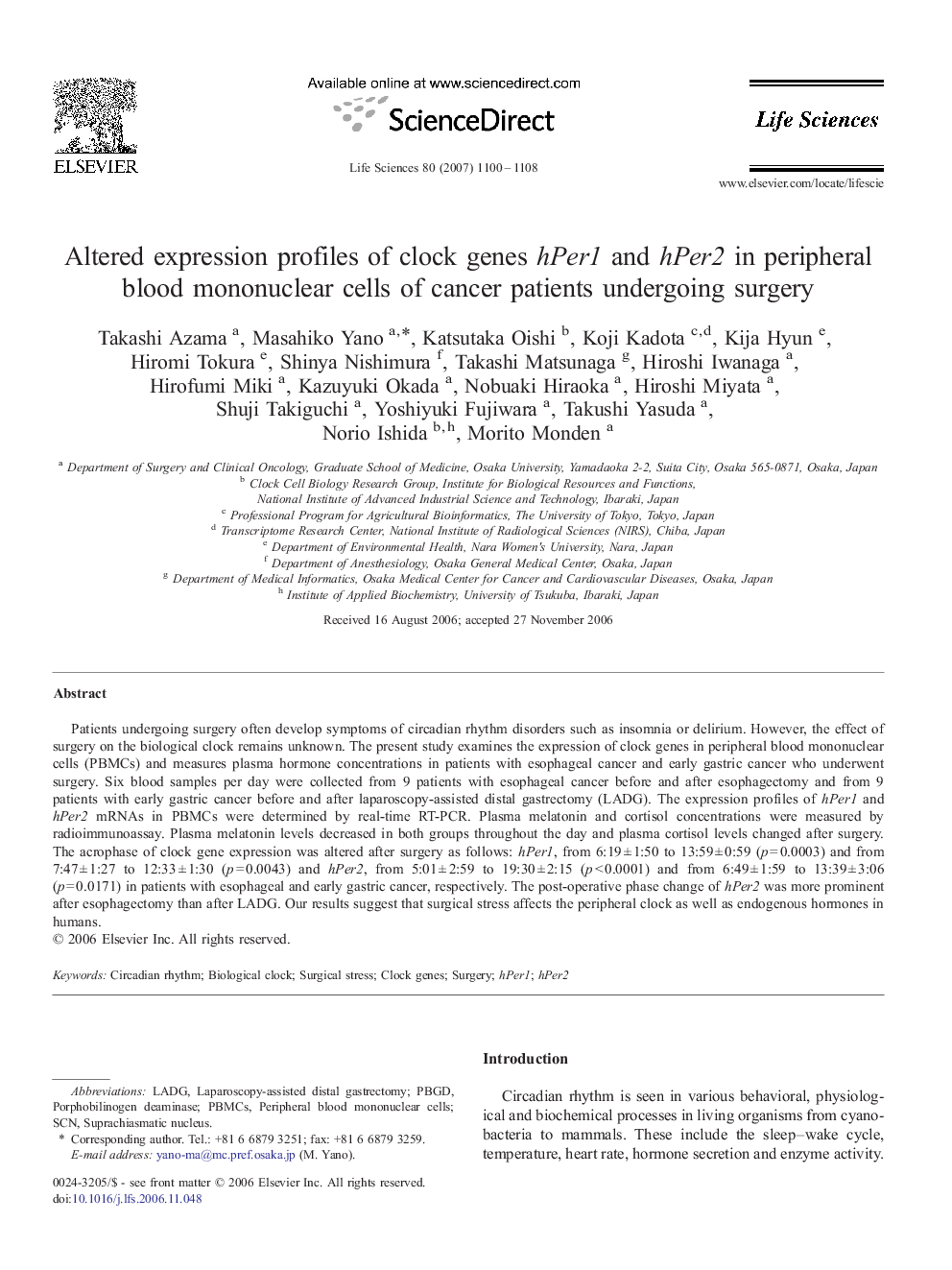| Article ID | Journal | Published Year | Pages | File Type |
|---|---|---|---|---|
| 2552985 | Life Sciences | 2007 | 9 Pages |
Patients undergoing surgery often develop symptoms of circadian rhythm disorders such as insomnia or delirium. However, the effect of surgery on the biological clock remains unknown. The present study examines the expression of clock genes in peripheral blood mononuclear cells (PBMCs) and measures plasma hormone concentrations in patients with esophageal cancer and early gastric cancer who underwent surgery. Six blood samples per day were collected from 9 patients with esophageal cancer before and after esophagectomy and from 9 patients with early gastric cancer before and after laparoscopy-assisted distal gastrectomy (LADG). The expression profiles of hPer1 and hPer2 mRNAs in PBMCs were determined by real-time RT-PCR. Plasma melatonin and cortisol concentrations were measured by radioimmunoassay. Plasma melatonin levels decreased in both groups throughout the day and plasma cortisol levels changed after surgery. The acrophase of clock gene expression was altered after surgery as follows: hPer1, from 6:19 ± 1:50 to 13:59 ± 0:59 (p = 0.0003) and from 7:47 ± 1:27 to 12:33 ± 1:30 (p = 0.0043) and hPer2, from 5:01 ± 2:59 to 19:30 ± 2:15 (p < 0.0001) and from 6:49 ± 1:59 to 13:39 ± 3:06 (p = 0.0171) in patients with esophageal and early gastric cancer, respectively. The post-operative phase change of hPer2 was more prominent after esophagectomy than after LADG. Our results suggest that surgical stress affects the peripheral clock as well as endogenous hormones in humans.
